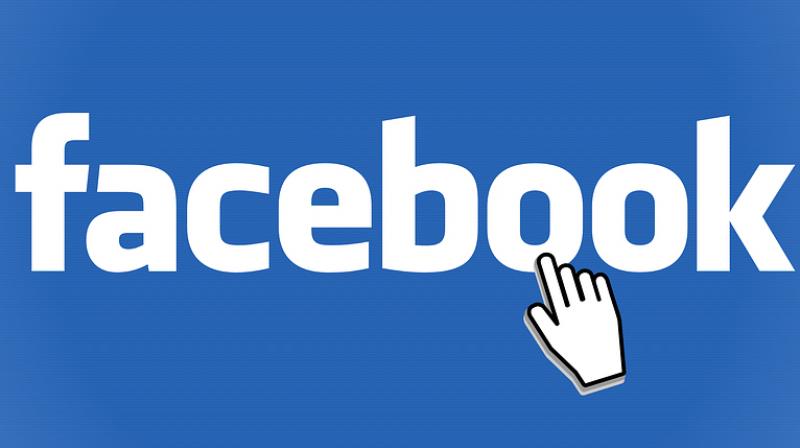Facebook stares at uncertain future as youth leave
Death of organic reach, poll-fixing charges may cost it badly.

Hyderabad: Controversies at Facebook could indicate a tech crash and a “history repeats itself” moment similar to that of Yahoo. With the top line leadership failing and resorting to political propaganda, Facebook could follow the footsteps of Yahoo which shutdown its messenger service in 2018.
Facebook chief operating officer Sheryl Sandberg tried to downplay the interference of Russia in the US elections to the board of directors, and hired lobbyists to deflect blame on to other firms and to tarnish critics, according to a New York Times report. Since the onset of 2018, Facebook has come under severe criticsm and its shares have fallen by 27 per cent.
The Economist in its article wrote, “Facebook should heed the lessons of internet history” and predicted that star perfo-rmers may leave to work at less controversial co-mpanies, and Facebook could end up paying dearly for mediocre employees to stay on (as its share price falls, it has to hand out more in stock-based compensation to keep people).
Mr V. Shakthi, a senior technology blogger, said, “The threat of Facebook falling it to pieces was when the Cambridge Analytica issue hit them, where the whole process of manipulation of popular vote happened. All they did was go up to the US Senate and stuck it out and said, ‘we are doing something but we can’t tell what we are doing’, ‘We are secure but we can’t tell you what we are doing to be secure’. They are very systematically avoiding accountability. The management has been less committed, less accountable to users and more focused towards money making.”
They have been doing controversial things like killing organic reach for pages.
Citing an example, Mr Shakthi said, “Essenti-ally they became the platform of choice because of organic reach. Now when you pay them, it doesn’t matter whether your page has 393 likes or 3 million likes, unless you pay them, you won’t get the reach.”
Experts opine that doomsday is near but unlike Yahoo, Facebook has played it safe by buying Instagram and Whatsapp. Technically Facebook is not similar to Yahoo, which was also ditched by advertisers and not just people alone. Facebook has a phenomenal number of large advertisers and more flocking to it due to the sheer number of users.
Mr Karthik Srinivasan, an independent communications consultant, said, “Talk of Facebook’s death may be exaggerated in the short-term as they have the backing of advertisers but there are chances that it will be broken down. They have done way too much baloney in the recent past.”
He said Yahoo didn’t have a sticky product because mail was taken over by Gmail, news was taken over by everyone, search by Google. “So all their products became less competitive and less useful apart from the management. Facebook has a highly sticky product and in form of sticky sub-products it has Instagram and Whats-app,” he explained.
He pointed that the parent platform may go for a toss but the rest of them are extremely powerful and it is in a slightly different position. Drawing similarities between Blackberry and Facebo-ok, Mr Srinivasan said, “From a market interest and usage perspective Facebook’s fall is similar to Blackberry’s. Black-berry was literally ruling the world and within a few years they were dead. Facebook took plain dubious management decisions, while Black-berry took management decisions but in a hubristic manner.”
With huge revenues from advertising flowing through Facebook, a sudden fall is unlikely. Facebook is so large, it won’t be sudden unless the US government pulls the plug and asks it to shut down, which has never happened in the history of technology companies.
Meanwhile new people are not coming to Facebook as they used to before. According to The Economist, “Adults over the age of 18 are spending 31 per cent less time on Facebook’s core social network compared with two years ago, which will translate into fewer opportunities to sell ads. Now, ads are around one-fifth of all posts that users see on Instagram, which is probably double what it was a year ago.”
Experts opine that this trend will continue and there won’t be any dramatic increase in the user base of Facebook as the next generation has leap-frogged social media and found slightly more niche sites. Facebook’s entire business is based on people and their data.
One cannot research an author if you see a post by that person. If you share your link along with status, it doesn’t show up on your friends feed.
Mr Shakthi added, “Even publishers are shying away from Facebook and they are going to Twitter which makes more sense to drive traffic. My generation was born with no Internet. Yahoo was the go-to place and became indispensable. Anybody who was online was on Yahoo and there was nothing you could do online without Yahoo. Once you get to critical size, unless you keep thinking and have fresh thoughts and come up with ways to engage people, eventually you are going to run into financial problems. Facebook has killed all logically sensible things on their platform.”

